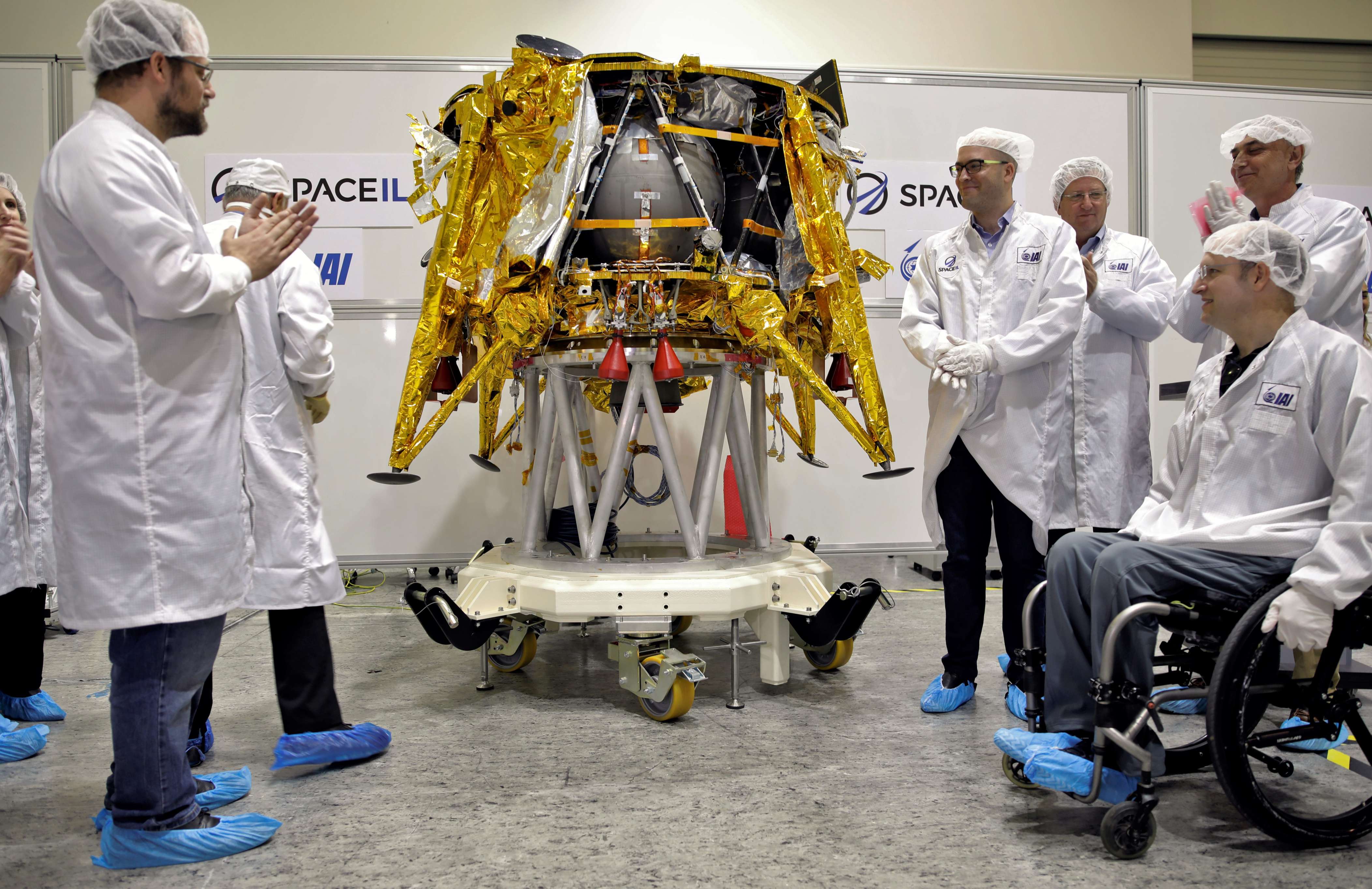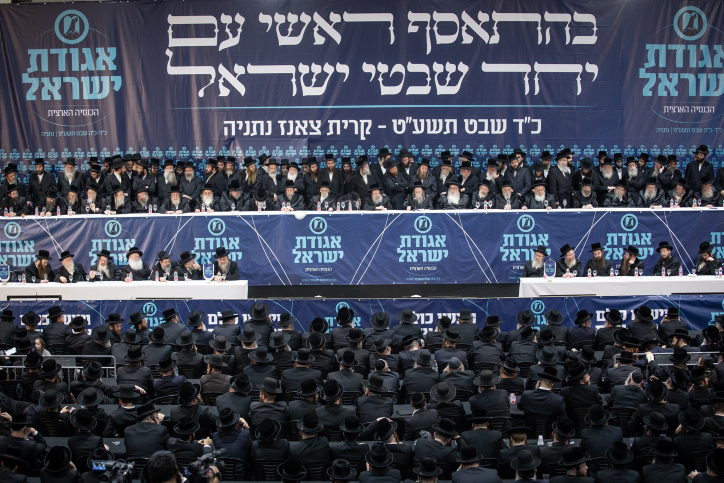 Is the State of Israel a vile, anti-Torah entity? Apparently there was a letter in Mishpacha magazine, two weeks ago, to that effect. I didn't see it myself, but there was a letter responding to it in this week's magazine. The author of the rebuttal wrote at great length about how the State of Israel, regardless of the theology of Zionism and its flaws, has been an enormously positive force for Torah Judaism. I don't have it with me, but as I recall, he wrote about how there are mezuzos on all public buildings, and kosher food at various public institutions. He also wrote at great length about how the State of Israel makes an enormous financial contribution to Torah study, and how as a result, there are more people learning Torah today than at any time in history.
Is the State of Israel a vile, anti-Torah entity? Apparently there was a letter in Mishpacha magazine, two weeks ago, to that effect. I didn't see it myself, but there was a letter responding to it in this week's magazine. The author of the rebuttal wrote at great length about how the State of Israel, regardless of the theology of Zionism and its flaws, has been an enormously positive force for Torah Judaism. I don't have it with me, but as I recall, he wrote about how there are mezuzos on all public buildings, and kosher food at various public institutions. He also wrote at great length about how the State of Israel makes an enormous financial contribution to Torah study, and how as a result, there are more people learning Torah today than at any time in history.Now all of this is true, and so from a charedi perspective, it is important to have tremendous gratitude to the State of Israel. However, since there are many non-charedim who read Mishpacha (due to the tragic lack of alternatives), I think it's important to clarify two points.
First is that the massive financial support by the state for yeshivos and kollels is not necessarily a good thing. It exists due to the oversized political clout of the charedi political parties, who are happy to sign off on governmental policies regarding the country as long as they receive money for yeshivos. And it fosters a society of dependents who have renounced Chazal's values of independency and raising one's children to be independent. Which will have catastrophic results further down the line.
But I've written about that elsewhere, and it's not the main point that I want to make here. The important point that I'd like to stress is that from a religious perspective, it is a mistake to think that the State of Israel can only be justified from a religious perspective in terms of its support for overtly religious matters.
Chasam Sofer writes about how the economic development of the Land of Israel is part of the mitzvah of yishuv ha'aretz. But there's more than just that. Bein adam lechavero is no less important from a religious perspective than Bein adam leMakom. The fact that the State of Israel provides a home for any Jew around the world is also valuable from a religious perspective. The fact that it provides and maintains an economy in which millions of Jews live their lives is also valuable from a religious perspective. The fact that the State of Israel engages in efforts to help Jews all around the world is also valuable from a religious perspective.
It's generally only the Dati-Leumi community which seems to realize this, but it should be a universal religious perspective. The national material well-being of the Jewish People is also something of religious importance.
And there's more than that. Even something as seemingly theologically irrelevant as the launch of the Beresheet Moon Lander is significant from a religious perspective. I can't put it any better than Justin Amler did in a spectacular Facebook post, which was then published at the Times of Israel. Here it is, in its entirety:
To Soar Among the HeavensA fabulous piece of writing! But at the same time, we should remember that it's not only in terms of extraordinary achievements that Israel is to be celebrated. The very fact of it existing and functioning as a country is of tremendous religious value.
I just watched something that is out of the world — something that has left me with a tear in my eye and a lump in my throat. Something that has stirred my soul and filled my heart with wonder and love and joy and pride.
I’ve just watched a rocket launch into space from Cape Canaveral. But this was no ordinary rocket. Aboard this rocket is the first privately built lunar spacecraft that will head to the moon. But not only is this the first privately built lunar spacecraft. It is also the first Israeli spacecraft.
It is called “Beresheet,” which is Hebrew and means “in the beginning.” It is also the first word in the Torah — the Jewish people’s oldest and most precious possession. And aboard this ship of dreams will be our Torah, Israeli songs, drawings by Israeli children, the Israeli national anthem, and our prayers.
I look at this magnificent feat of engineering and I cannot help but gaze upon it with the eyes of a small child, filled with wonder.
Sometimes people say the era of miracles has ended, but then I look at this little country and I look at my people and I look at what they have achieved and still do and I know and am convinced more than ever that the era of miracles has not ended — but indeed continues unabated.
There are so many countries that are against Israel and every day brings more resolutions passed against it, passed by corrupt organizations and even more corrupt people. All around the world, anti-Semitism has been normalized leaving Jews in many parts of the world in actual physical danger. And what many Jews face today is not dissimilar to the darkest days of Europe in the 1930s and 1940s.
It leaves many of us feeling emotionally vulnerable, for a little over 70 years ago, we were a broken people whose ashes were spread in unidentified piles of soot, consumed by the hatred of those around us. We were a people who had no place to call home. We had no one to defend us. We stood alone in the world, shattered and shocked, hurt and bruised, broken and traumatized. Empty.
But not defeated, for we were still alive. Maybe barely. Maybe weakly. But alive. For air still filled our lungs and our flame had not yet been extinguished. And from those ashes of despair, we rose again, as we always have and as we always must.
So slowly, we reclaimed our ancient homeland. And slowly, we began to return. And slowly, our battered bodies began to repair themselves. And slowly, we reclaimed our dignity. And slowly, we reclaimed our honor.
Our enemies still came at us. Still threatened to wipe us out. But we grew stronger and we continued to survive. And not just survive — thrive!
And from this poor destitute people, the heart of Israel beat again. And the nation of Israel rose once more. A poor country struggling on life support fought on — against overwhelming odds, defying the laws of history itself.
For defeat is not part of our story. And those words, words from thousands of years ago, were still ringing in our ears. The words of God that said to a shepherd who stood alone in the world, I will make of you a great nation.
So today, while our enemies launch rockets to kill, we launch rockets to explore. While they look for ways to destroy the world, we look for ways to visit new worlds. While they look for ways to make life miserable for all, we look for ways to make life better for everyone.
So I look at this rocket hurtling into space, aboard it a ship of dreams. A ship built not of steel, but of hope. A ship built not of aluminium, but of aspirations. A living ship whose heart beats strongly, echoing around the world. A ship with a soul — a soul thousands of years old.
And with a pride that cannot be measured, I look to the sky above, to the stars, to the worlds beyond ours. I look at where we have been, how far we have come, and how far we will go. I look at how our people once grounded into dust have risen to soar among the heavens themselves.
In the beginning of time, there was darkness and then there was light. Tonight, there will be one more light above us, one more star adorned with the flag of Israel, shining and glistening in the beautiful heavens, the same heavens which Abraham once looked upon with hope and wonder. And the same heavens, we will be looking upon tonight.









